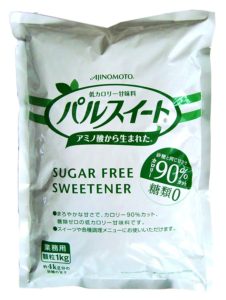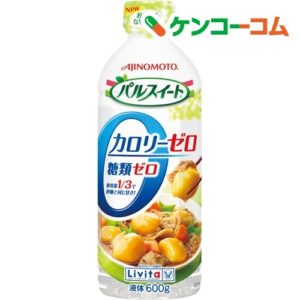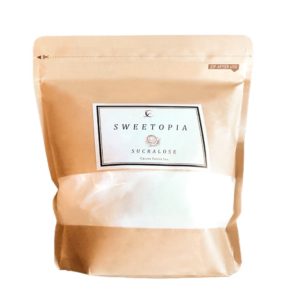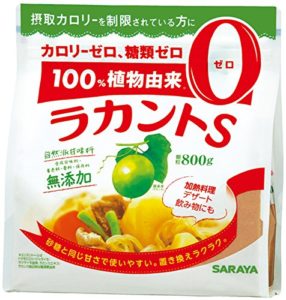
aspartame
It is less bitter and has a sweetness similar to sugar, with a refreshing aftertaste. Further, when heat treatment is performed at high temperature for a long period of time, it is desirable to add before or after the end of heating in order to avoid decomposition during heating.

saccharin
It is stable when heated, but may leave a metallic aftertaste and a bitter taste.

acesulfame potassium
Sweetness is felt quickly and has no aftertaste, but a unique bitterness may be felt. In addition, it is highly stable against heat and enzymes, and highly water soluble.

Sucralose
It has a mellow sweetness similar to sugar, is resistant to heat and acid, and easily dissolves in water.

Erythritol
It is characterized by its refreshing sweetness and is often used at home due to its low price.
From here on it's subjective.
When we talk about artificial sweeteners, the first thing that comes up is "bad for the body" or "no problem."
Many artificial sweeteners were created in recent years (within 100 years), and no one has continued to eat them for decades. (Of course, we are conducting mouse experiments.)
My theory is that no one knows if it's safe to continue eating this.
Next, I think that there are many patterns in which healthy people use it for dieting, rather than those who are ill with diabetes.
Artificial sweeteners (alternative sweeteners) are sweet but are designed not to raise blood sugar levels. After all, humans are not satisfied by eating sweets, but by raising blood sugar levels, so eating alternative sweeteners is not so satisfying.
In experiments with mice, when they licked an aqueous solution of artificial sweetener, they licked a large amount at first. But at some point your brain realizes that artificial sweeteners have no calories (energy). It seems like she won't drink at all.




